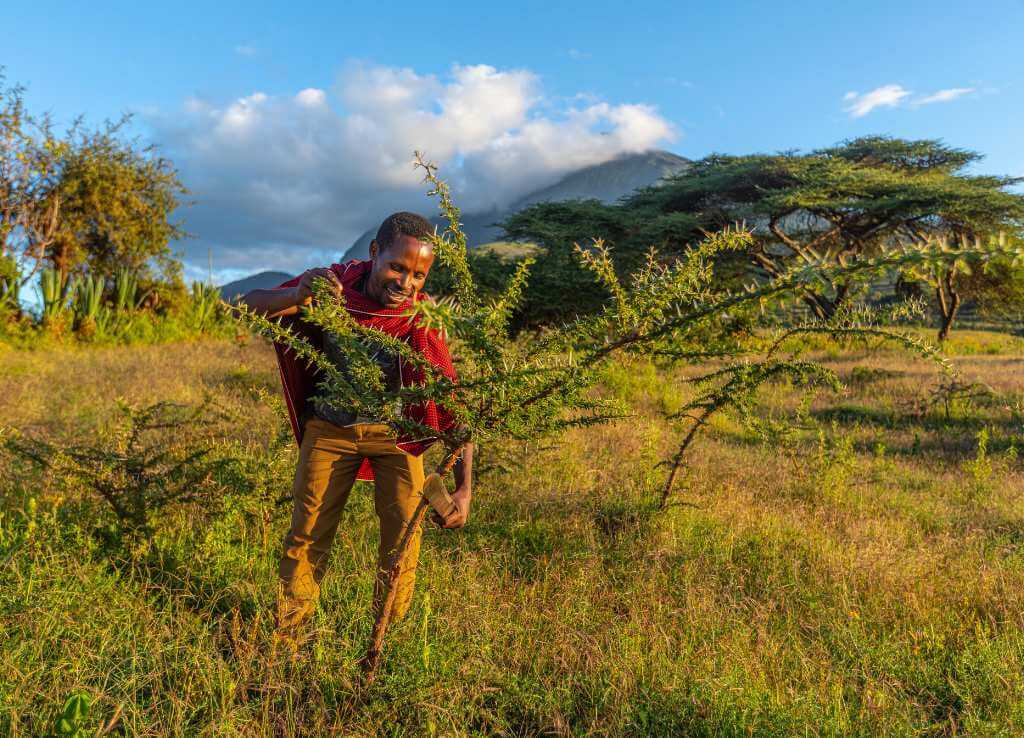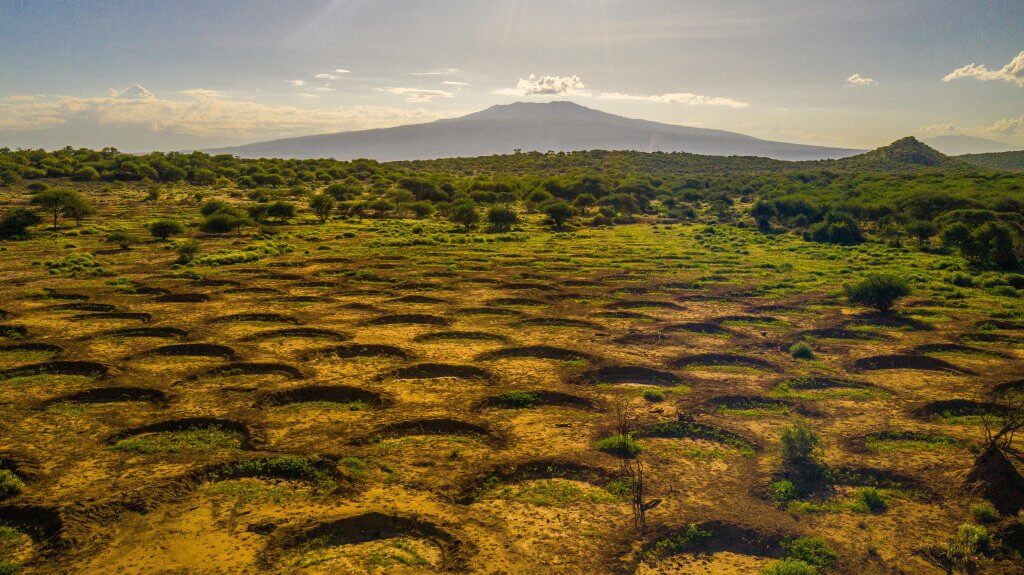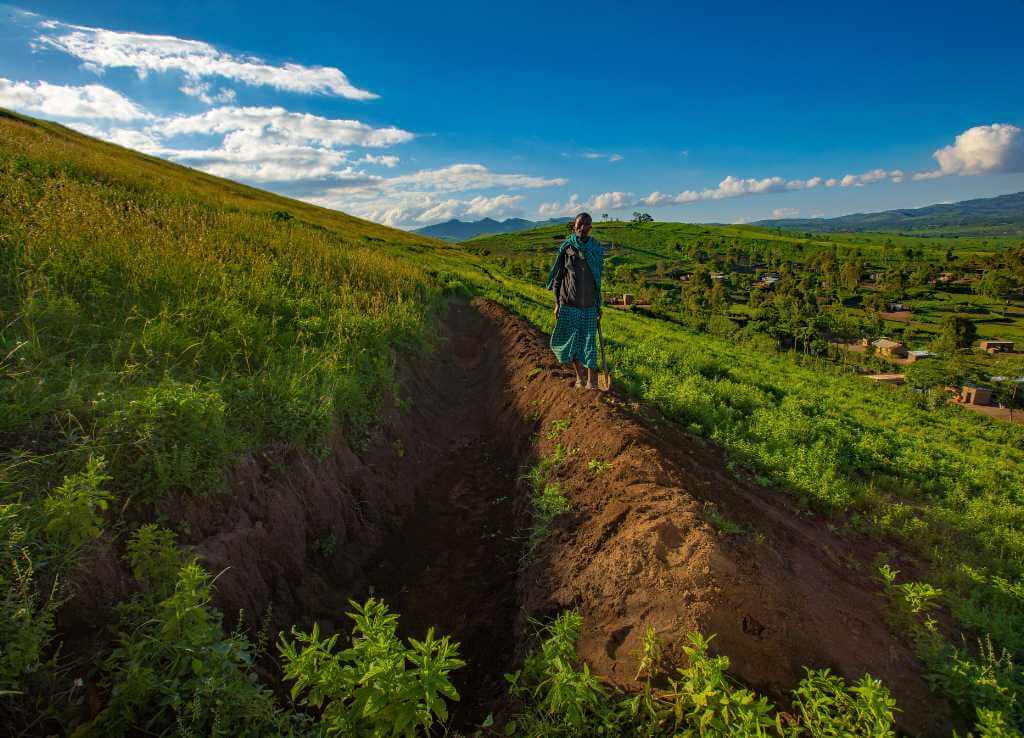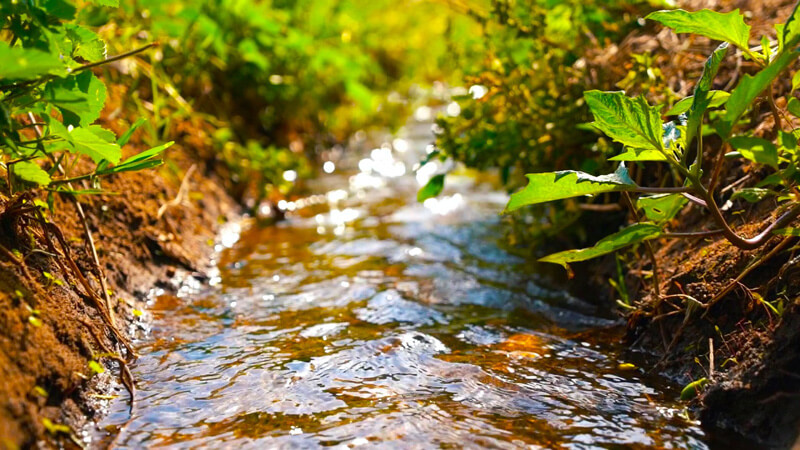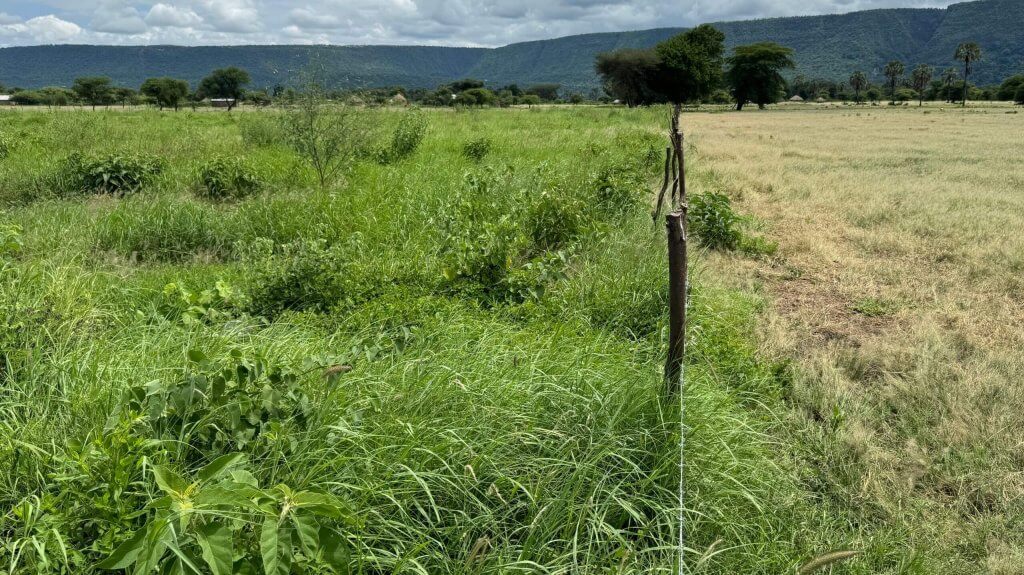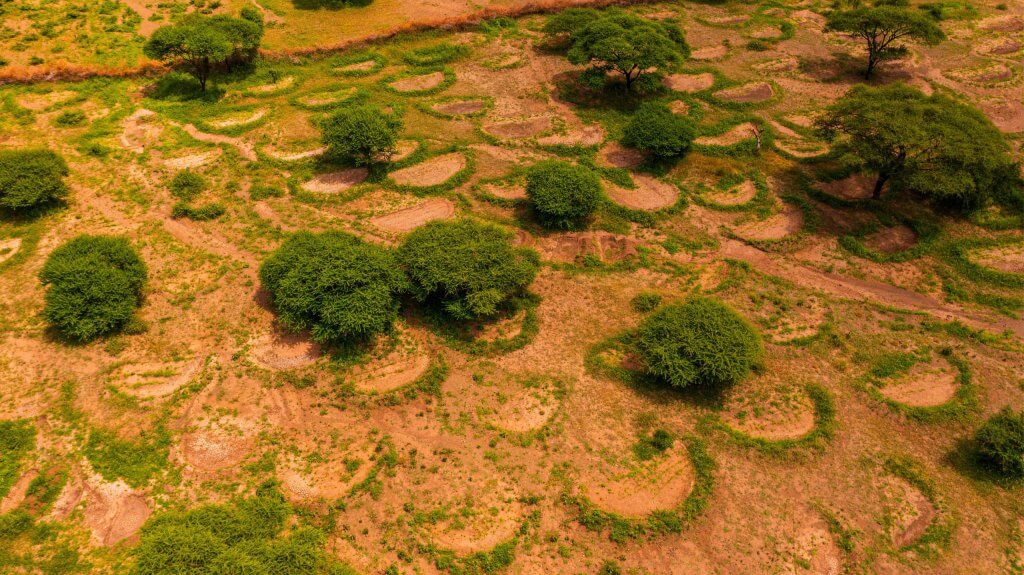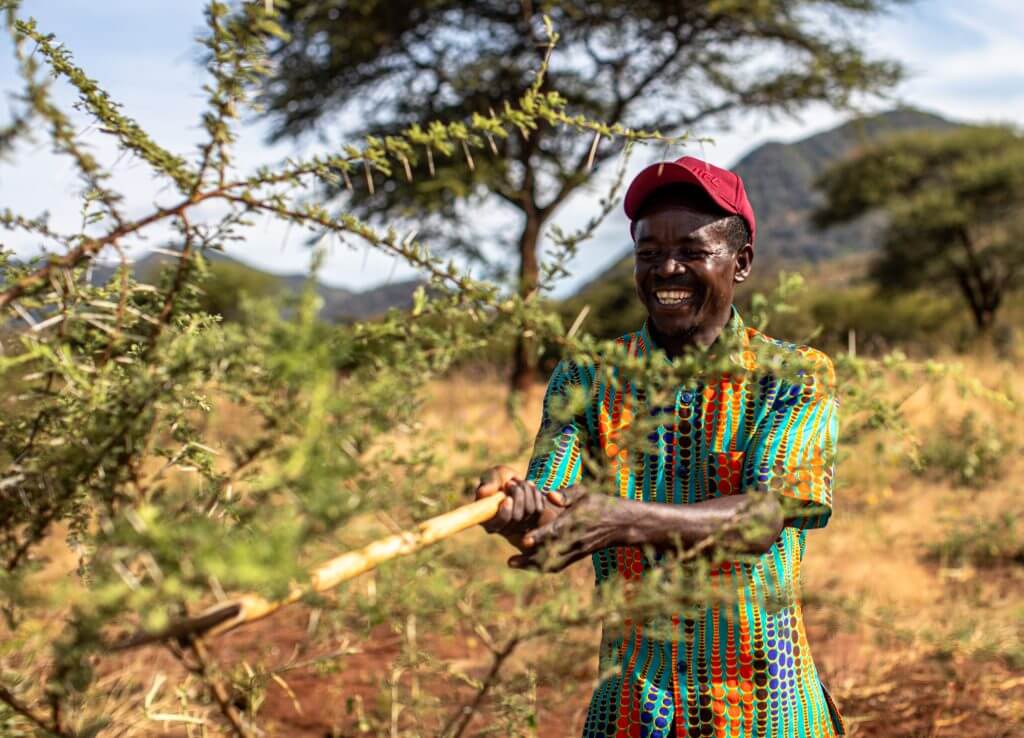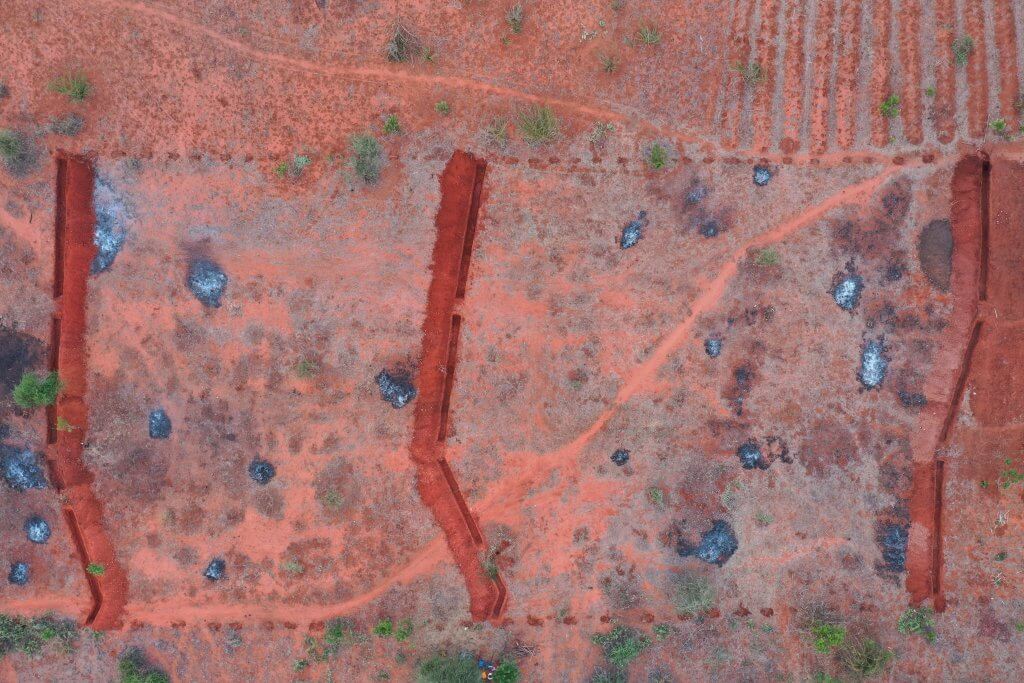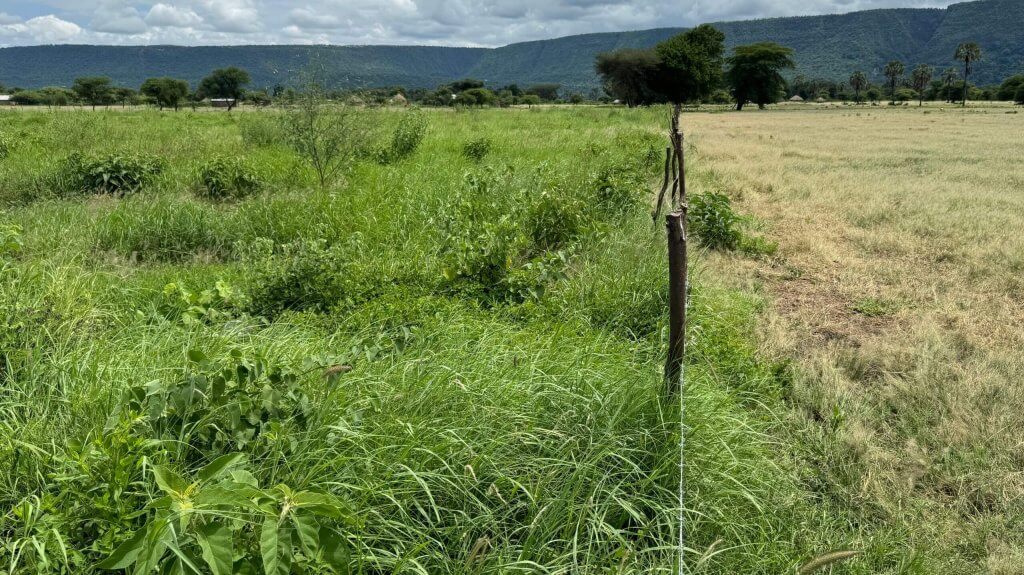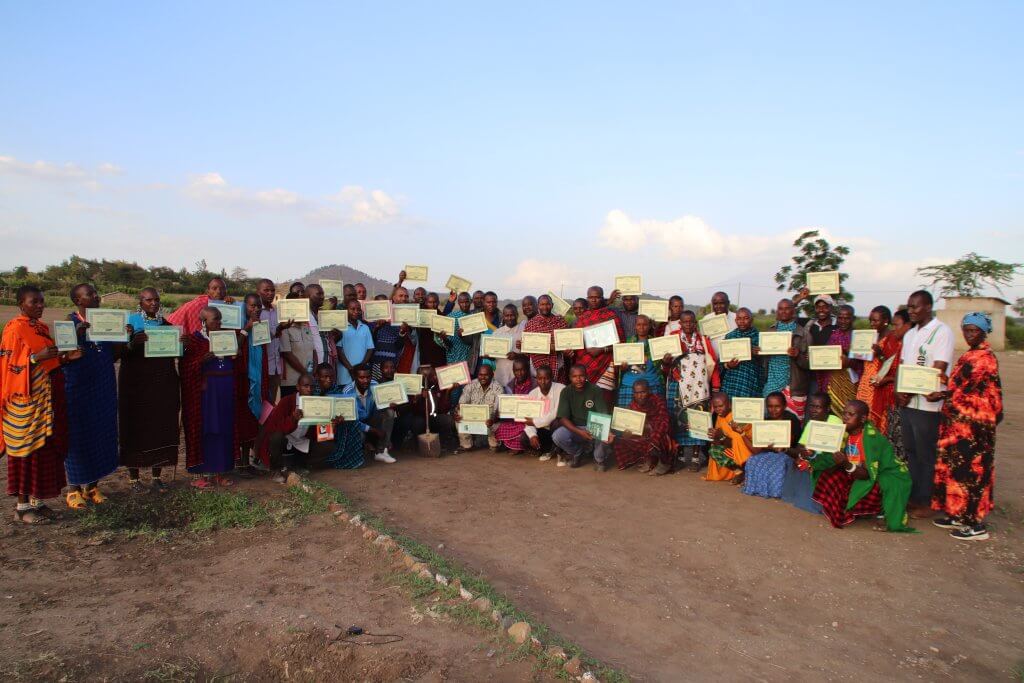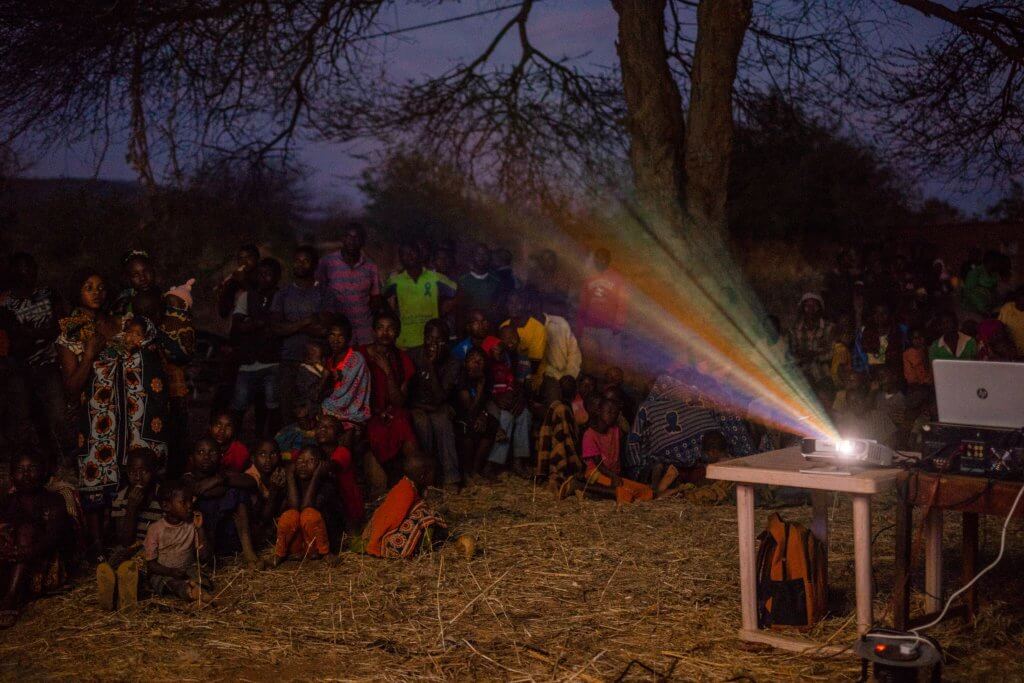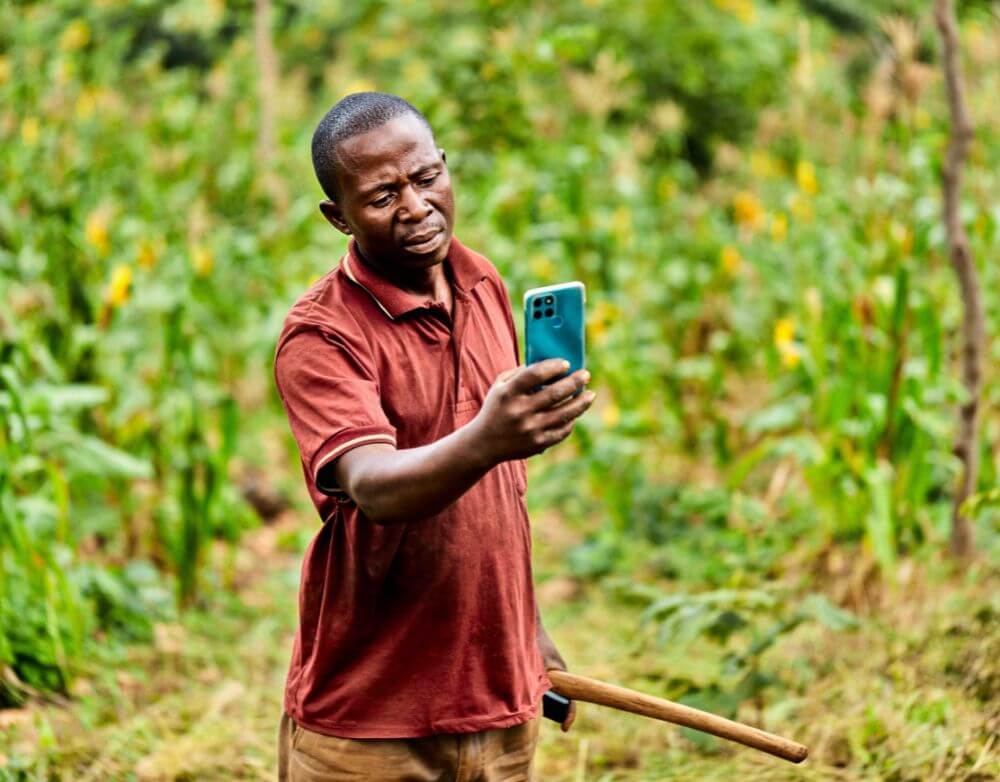Regreening project
Amboseli & Olgulului-Ololarashi, Kenya
Amboseli & Olgulului-Ololarashi, Kenya
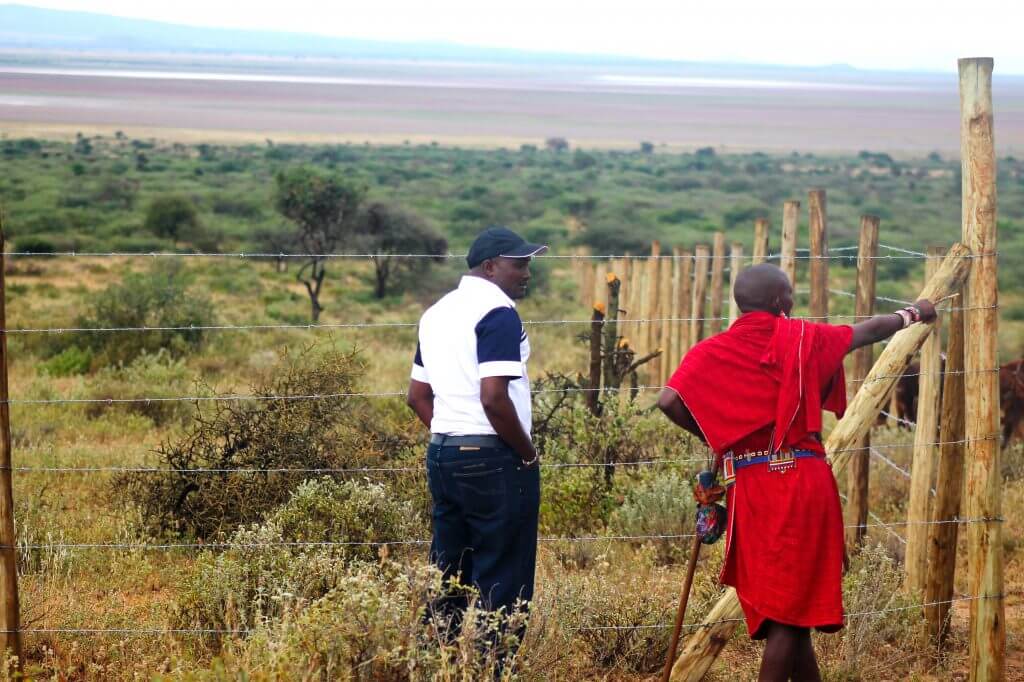
Regreening and improving the land of Maasai pastoralists and farmers
In Northern Tanzania, we partner with Trias and LEAD Foundation to breathe new life into Arusha and Manyara regions.
The regions are home to the farmers and pastoralists, who rely on agriculture and livestock for their livelihoods but face challenges due to drought and insufficient pasture.
Time for a change! That’s why we are restoring agricultural and communal grazing lands along the Lake Manyara – Lake Natron Wildlife Corridor together with LEAD Foundation, Trias and Member Based Organizations.
Our goal is to improve the lives of local communities while restoring nature through Rainwater Harvesting (RWH), Farmer Managed Natural Regeneration (FMNR) and Pastoralist Managed Natural Regeneration (PMNR). These methods are fast, cost-effective, and sustainable, allowing residents to rejuvenate their lands, benefiting water availability, soil health, crop yields, and livestock fodder. At a larger scale, regreening also has a cooling effect on the local climate.
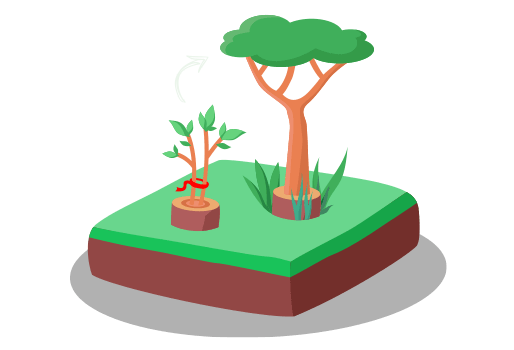
trees regenerated
water bunds dug
Fanya Juu & Fanya Chini
litres of water retained in 2024
grass seed banks
We bring back forgotten tree stumps by using a technique called Farmer Managed Natural Regeneration (FMNR), or – as we like to call it: Kisiki Hai. This is more effective than planting new trees!
By regenerating those trees, we are able to restore the degraded areas and make these areas green and cool again.
Farmer practicing Treecovery. Manyara, Tanzania in May 2023.
Bunds (or as we like to call them: “earth smiles”) are semi-circular shaped pits that capture rainwater.
They are dug in the project areas in Africa in order to capture rainwater that will otherwise get washed away over the dry, barren soil. By digging bunds, we can regreen a large area in a very short amount of time, benefiting biodiversity, nature, people and – eventually our climate.
Emurua, Arusha in May 2023.
Fanya Juu and Fanya Chini are rainwater harvesting techniques. Farmers dig trenches along the contours within their farmland to prevent erosion and to capture the valuable rainwater within their land.
Farmer in Monduli, Arusha in May 2023.
One of the main advantages bringing back vegetation is that it creates more moisture into the air. Vegetation “transpires”: it releases moisture into the air which cools it down. On a large enough scale, this helps to create clouds and increases the chance of rain, especially at the beginning and end of the rainy season, helping to restore the water cycle.
Within our grass seed banks, Maasai women grow, harvest, and sell grass (hay) and seeds. They make an income by selling them on local markets or to organizations. The grass seed banks form an oasis of green in the barren surroundings, and the hay the women harvest is food for their livestock in dry seasons.
Selling the grasses and the grass seeds harvested from the grass seed banks generates a source of income for the women who are managing the grass seed banks. This income serves as an alternative livelihood, making the women more independent.
In total 121 women are involved in these grass seed banks.
Grass seed banks in Monduli, Tanzania in 2024
Water bunds are semi-circular holes dug to open up the hard top layer of the soil.
The bunds slow down and capture rainwater running downhills, preventing erosion of fertile soil. The water balance in the soil restores, increasing the water availability for the seeds still present in the soil. These seeds now get the chance to sprout, which means: regreening! Within the Arusha project area, the Maasai community already dug 22,000 water bunds!
Pastoralist Managed Natural Regeneration (PMNR), or Kisiki Hai (‘living stump’ in Swahili), is a technique to regrow trees and support new, naturally occurring sprouts to grow big.
With the program local Maasai pastoralists and farmers are trained to apply the technique on their own land, allowing the regeneration of 32,000 trees.
Fanya Juu and Fanya Chini are rainwater harvesting techniques. Farmers dig contours within their farmland to prevent erosion and to capture the valuable rainwater within their land.
Fanya Chini means ‘ throw it downwards’ in Swahili. It prevents the rain from falling outside the farm from entering the farm, inhibiting erosion of fertile soil. Fanya Juu means ‘throw it upwards’, and prevents the rain falling within the farm to run off, increasing the water availability for the crops on the land. In the end, it helps the farmers to regreen their farms even more!
Grass seed banks are small parts of communal land that are used for the production of grasses and grass seeds.
The grass seed banks are managed and maintained by Maasai women groups. Once the grasses are fully grown, the grasses produce grass seeds which are sold by the women on local markets or to other regreening projects. This means more income for the women and more green in other areas, a win-win situation!
By training 160 facilitators (so-called ‘regreening’ champions), we can reach out to 1900 agro-pastoral households in the Arusha region.
These champions train their fellow community members on how to regenerate trees on their land. This way thousands of people are activated to regreen their own land, bringing back millions of trees in the Arusha region resulting in an increase in drought resilience, food production, and household income. The regreening champions are also trained in rainwater harvesting practices, helping them to regreen the land even further.
For us it is not only important to train people how to regreen their land, but also find other ways to reach and inspire them. By building a real regreening movement we aim to reach and inspire millions of Maasai pastoralists and farmers.
Part of this regreening movement is our movie roadshow: a video-caravan going from village to village. The roadshow is a whole day event, filled with theatre, music, dance, and performances all about Kisiki Hai. When the evening falls, a large movie-theatre screen is set up, which shows the inspiring movie Kisiki Hai that is filmed entirely in Tanzania.
To spread the regreening movement even further, we’ve set up various approaches to reach and activate communities, without physically visiting them. This way we are able to inspire pastoralists and farmers in and outside of the Arusha region!
Together with partners LEAD and Erbacher Foundation, we will offer a Regreening SMS-service. Pastoralists can subscribe to this service, which will send them a text message every week with tips and tricks on how to practice Kisiki Hai and Fanya Juu, and Fanya Chini.
To truly understand how nature-based solutions transform entire landscapes, ecosystems and communities, you have to see it with your own eyes.
And that’s where we run into a problem: we can’t transport the entire world to our project areas. With this interactive experience, we found a solution. We decided to bring our regreening projects directly to you. Virtually, wherever you are. Come on in and experience the Water bund site and Treecovery farm!
Our mission is to regreen African landscapes in the next 10 years, together with millions of farmers, and together with you.
If we want to cool down the planet in one decade, everyone needs to be in on the change. Through the power of media, communication, data, and the latest technology we can spread our message and scale up. We want to inspire, unite and empower an entire generation, growing a landscape restoration movement.
